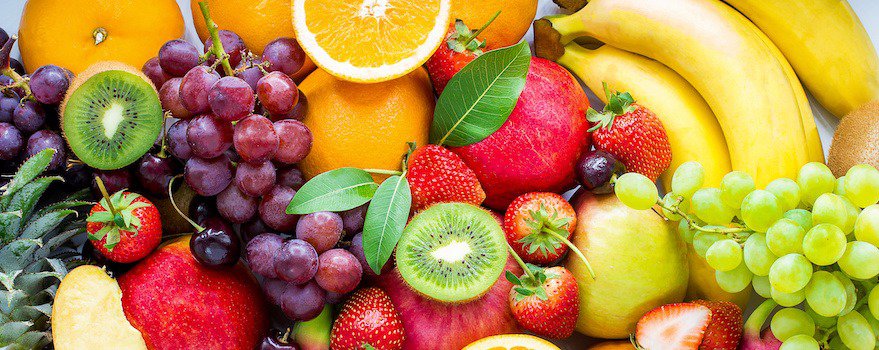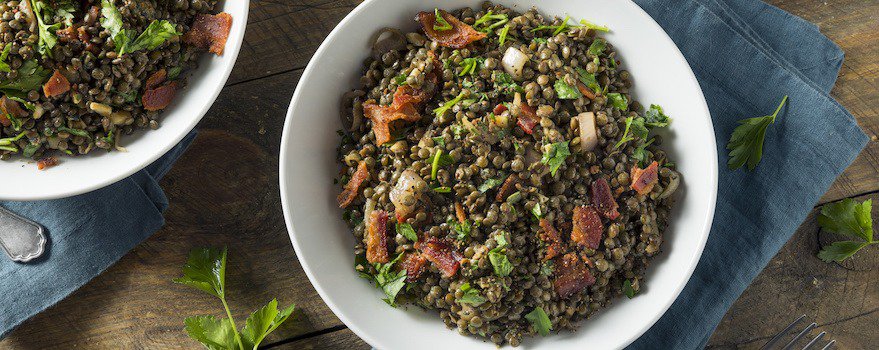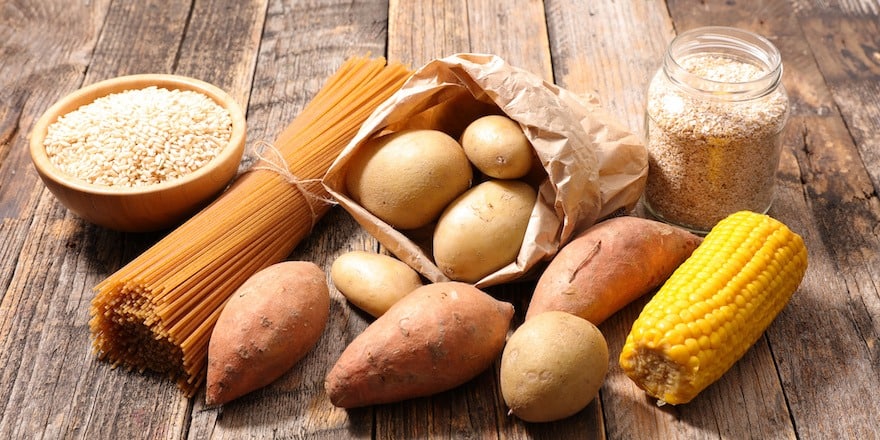What are carbohydrates?
Carbohydrates are energetic organic compounds. They are also referred to as hydrates of carbon or sugars. They are divided into two categories:
- Simple carbohydrates which include glucose, galactose, fructose, maltose, and lactose. Sucrose or white sugar is made up of fructose and glucose, whereas lactose (found in milk) combines galactose and glucose.
- Complex carbohydrates which include starch, glycogen, and fibers.
They belong to the group of seven macronutrients that provide the necessary nutritional elements for life, like lipids, proteins, minerals, vitamins, trace elements, and water.
Previously reserved for nobles and bourgeois, refined sugar saw its consumption increase significantly from the 19th century. In France, the annual sugar consumption is now estimated at 35 kg per person!
Carbohydrates are stored in the liver and muscles in the form of glycogen. During intense physical activity, the body draws from glycogen reserves to synthesize glucose in order to provide energy to the muscles.
The functions of carbohydrates
Carbohydrates play several roles in the body:
- Provide energy supply (4 kCal/g). The muscles and the brain are two organs that daily draw from carbohydrate stocks. Glucose is the brain’s only fuel.
- Have a satiating effect. Carbohydrates affect satiety and regulate appetite.
- Involved in the composition of certain proteins (including glycoproteins), DNA, and RNA
- Ensure glycogen reserves to be released as glucose when energy is needed
- Increase blood sugar levels according to energy needs. Blood sugar levels must be kept at a steady rate to meet the body’s constant needs. During physical or mental exertion, it increases.
- Have a positive role on sleep by contributing to the increased synthesis of tryptophan. This amino acid is a precursor to serotonin (the feel-good hormone) and melatonin (the sleep hormone).
A word on glycemic index:
The glycemic index or GI determines the blood sugar-raising power of a food, i.e., its impact on the increase in blood sugar compared to glucose. When the index is low (below 55), the food causes a slight increase in blood sugar. Or at the very least, the sugar is assimilated more slowly by the body.
When the glycemic index is high (above 70), the food quickly raises the blood sugar level. Taking this index into account allows you to adjust your diet according to your activity and regulate your carbohydrate intake. Therefore, it is useful to determine or know the glycemic index of each food to adapt your dietary intake.

Signs of Deficiency
For the body to function correctly, it is necessary to ensure sufficient carbohydrate intake. In Western countries, refined sugar is widely used in the food industry, and many foods contain it in large quantities.
Carbohydrate deficiencies are therefore rather rare. They are usually due to pancreatic or liver diseases, following a restrictive diet, or taking hypoglycemic medications.
The symptoms of carbohydrate deficiency are:
- hypoglycemia, which manifests in various symptoms (dizziness, sweating, loss of consciousness, confusion…)
- fatigue
- neurological disorders
- hypercholesterolemia
- the onset of stones
- the production of ketone bodies from lipids. In the case of fasting, these elements take over glucose to provide energy to the brain. It’s important to know that an excessively high level of ketone bodies is toxic to the body. It can cause ketoacidosis leading to coma.
Recommended Intake
It is considered that carbohydrates should represent approximately 50% to 55% of total caloric intake. The body’s needs vary depending on individuals according to different criteria (physical activity, age, sex).
In this regard, there are few figures concerning the recommended daily intake of carbohydrates. An adult consumes between 140 and 180 g of carbohydrates on average per day (25 to 30 g of fiber). The intake should be higher for athletes or pregnant and breastfeeding women.
Top 5 Foods Containing Carbohydrates
We distinguish between natural carbohydrates, white sugars (refined) and added sugars in most processed foods.
Indeed, ice creams, cakes, sodas, fruit juices, breakfast cereals, candies, ready-made dishes, prepared sauces… are rich in added sugars and are responsible for the general overweight issue in Western countries.
Here is a list of foods high in natural carbohydrates.
1. Pasta

Pasta provides an excellent source of carbohydrates. Top athletes often choose them, consuming them before intense physical activity. Their content is about 30 g of carbohydrates per 100 g.
For balanced meals, it’s advisable to favor whole grain pasta with a lower glycemic index, and to avoid fatty sauces. They pair well with meats and fish and can also be enjoyed in a salad.
2. Potatoes

Potatoes are rich in carbohydrates (about 15 g/100 g). Often considered too high in calories, they still provide a healthy dietary base when cooked with little fat.
However, it’s preferable to use olive oil rather than butter or fresh cream! There’s a variety of preparations: mashed, steamed, baked potatoes…
3. Legumes

Rich in proteins and carbohydrates, legumes (lentils, chickpeas, white beans, red beans) provide complete nutritional intake. It’s important to consume reasonable portions to avoid overly heavy meals.
Legumes typically require a long cooking time. When boiled, they can be enjoyed in a salad or as a side dish with lean meat, fish…
4. Honey

Honey contains fructose, a natural carbohydrate also found in fruits. Delicious, it can be eaten as is or used to make homemade pastries.
The advantage of fructose is that its sweetening power is greater than that of sucrose (refined sugar). It does not cause blood sugar spikes and does not promote insulin resistance. It’s better tolerated by diabetics but should still be consumed in moderation.
Honey can replace refined sugar in tea or coffee, with its nutritional benefits being more interesting. It can also be spread on toast for breakfast or a snack. Nonetheless, limit its consumption to a few teaspoons a day and be mindful of its origin!
5. Bananas

Bananas offer significant nutritional benefits due to their fiber richness. Their carbohydrate content is approximately 25 g/100 g. They improve digestion and provide natural sugars like most fruits. They also contain numerous nutrients, including potassium, magnesium, vitamins B6, and B9.
The nutritional benefits of bananas are maintained when consumed as is. They are ideal for breakfast, dessert, or a snack. Bananas can also be added to a fruit salad to enhance their characteristic flavor. Good news, they can also replace sugar in cake mixes!
Symptoms of carbohydrate overdose
Today, the introduction of sugar into prepared dishes, drinks, and many processed foods is widespread. We thus consume far too much sugar: about 35 kg per person per year.
This overconsumption has led to the emergence of new pathologies that have become public health issues.
Signs of carbohydrate overdose:
- Overweight, obesity
- Increased triglyceride levels in the blood
- High insulin secretion or hyperinsulinism, type 2 diabetes
- Onset of dental cavities
Being mindful of your total daily carbohydrate intake helps prevent these disorders.



